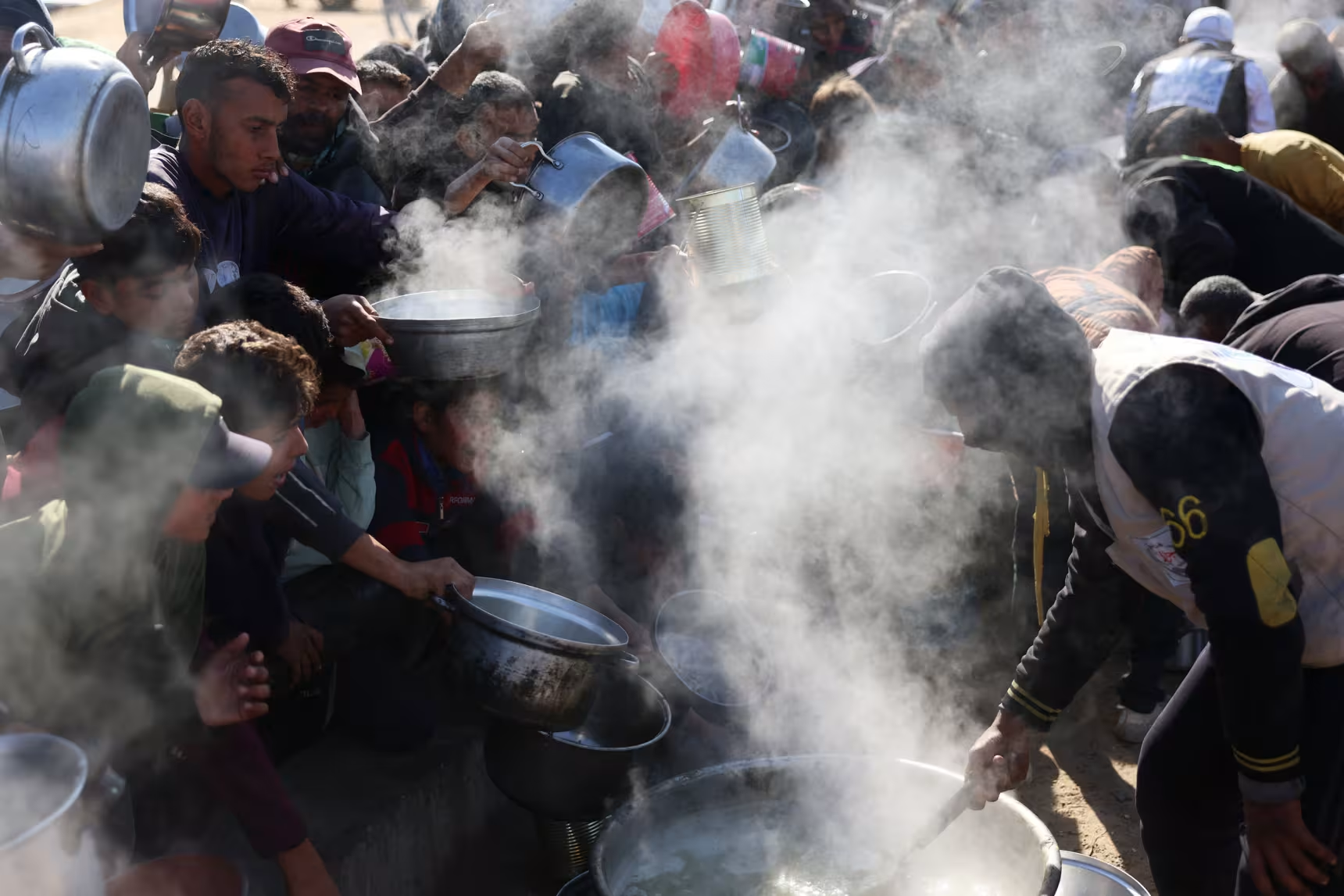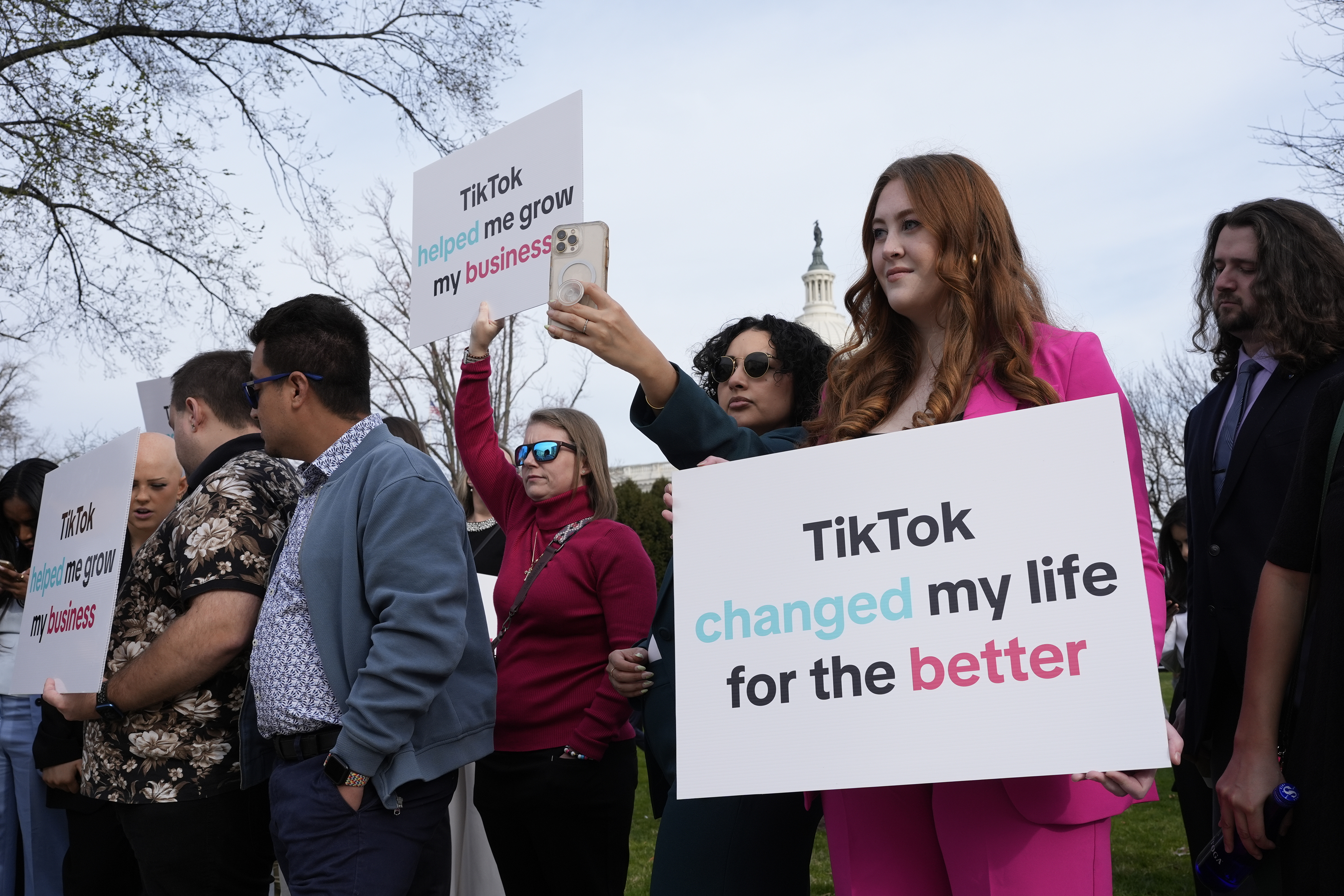Palestinian families are suing the State Department over U.S. support for Israel's military campaign in the Gaza Strip which has killed tens of thousands of people and led to a humanitarian crisis in the besieged enclave.
In a lawsuit filed in the U.S. District Court for the District of Columbia on Tuesday, the plaintiffs from Gaza, the occupied West Bank and the United States accuse Washington of creating exceptions for its close ally Israel to circumvent the 1997 Leahy law, which bars foreign military aid when there is evidence of human rights abuses.
Watch NBC6 free wherever you are
>“My surviving family members in Gaza have been forcibly displaced four times since October, living in constant fear of indiscriminate Israeli attacks carried out with American weapons,” one of the plaintiffs, Ahmed Moor, a Palestinian American, said in a statement published by the legal nonprofit Democracy for the Arab World Now, or DAWN, which helped bring the lawsuit.
“The U.S. government’s military assistance to these abusive Israeli forces, which our own laws prohibit, is enabling these Israeli harms to me and my family,” added Moor, one of five plaintiffs in the case.
Get local news you need to know to start your day with NBC 6's News Headlines newsletter.
>NBC News has reached out to the State Department for comment.
State Department spokesperson Matthew Miller said Tuesday that he “wasn’t aware” of the case, “but in any event I’d defer to the Department of Justice, who typically request that we not comment on cases that they’re going to have to respond to in court.”

U.S. & World
Secretary of State Antony Blinken has previously denied that the department made exceptions for Israel. “Do we have a double standard? The answer is no,” he told a news conference in April.
The U.S. remains Israel's biggest arms supplier, with Washington spending at least $17.9 billion on military aid for Israel in the first year of the country's offensive in Gaza, according to a report for Brown University’s Costs of War project.
The lawsuit, which was filed under the Administrative Procedures Act, comes after a State Department report in May found that it was “reasonable to assess” that Israel had violated international law in Gaza, using weapons provided by the U.S. — but that it hadn’t violated the terms of American weapons agreements.
In the highly anticipated report to Congress, the State Department said the U.S. ultimately did not have sufficient evidence to recommend that military aid to Israel be suspended, but that the administration's assessment of the Israeli military's compliance with international humanitarian law was ongoing.
Israel has maintained that it has made every effort to limit harm to Palestinian civilians during its 14-month war in Gaza, but health officials in the enclave say that more than 45,000 people have been killed in the offensive, including thousands of women and children.
But even as a ceasefire appeared to be inching nearer this week the fighting, which began after Hamas’ Oct. 7 attacks, that Israel says saw some 1,200 people were killed and around 250 taken hostage, continued in Gaza.

Throughout the war, there have been multiple instances of heightened tensions between the U.S. and Israel over the Israeli military's offensive.
In October, the Biden administration warned Israeli officials in a letter that if the humanitarian situation in Gaza did not improve within 30 days, the U.S. could be forced to restrict military assistance due to its need to continually assess under its own law whether Israel is directly or indirectly impeding the flow of aid to civilians.
But after that time period had elapsed, the State Department said Israel had taken a “number of steps” to improve the flow of aid into Gaza and said it would not be changing its policy on arms transfer to Israel, even though the United Nations and aid agencies cautioned that humanitarian situation in the enclave remained dire.
Less than two weeks later, the International Criminal Court issued arrest warrants for Israeli Prime Minister Benjamin Netanyahu and former Defense Minister Yoav Gallant, as well as for Hamas military chief Mohammed Deif, accusing the three of human rights abuses. Israel appealed the arrest warrants last week.
Meanwhile, Israel continues to face growing accusations of genocide over its offensive in Gaza both on the global stage and in a case before the International Court of Justice.
This story first appeared on NBCNews.com. More from NBC News:



